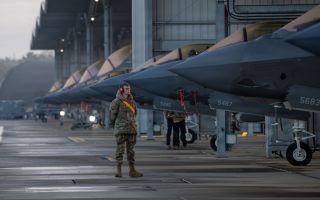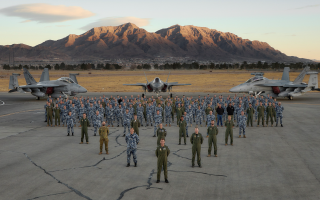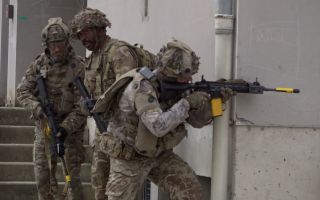
UK Could Have 'Seen Signs Syria Chemical Attack Was Coming'

The UK should have known a chemical attack was imminent in Syria and could have intervened earlier, according to a Syrian Doctor.
Speaking after a conference, held to promote a joint report between RUSI and charity Save the Children, saw a panel of experts discuss how to prevent civilian deaths in conflict.
Dr Abdulkarim Ekzayez, who practised medicine in Syria before joining Think Tank Chatham House, has told Forces News he believes that a chemical attack was likely from the Assad regime.
"I think we can say that there is a strategy used by the Assad regime.
"The first step is besieging areas they want to take over…the second step is targeting civilians with daily airstrikes…the third step is to target health infrastructure…the fourth step is introducing humanitarian corridors asking people to leave to go somewhere else, sometimes with an unknown fate.
"When all these tactics don't work sometimes they do a last resort tactic which is chemical weapons."
Following the suspected chemical attack on the city of Douma - the UK, US and France conducted airstrikes against the Syrian regime.
However, Dr Ekzayez believes if the US, UK and allies had intervened before the Russian involvement they could have "absolutely" avoided a lot of civilian deaths.
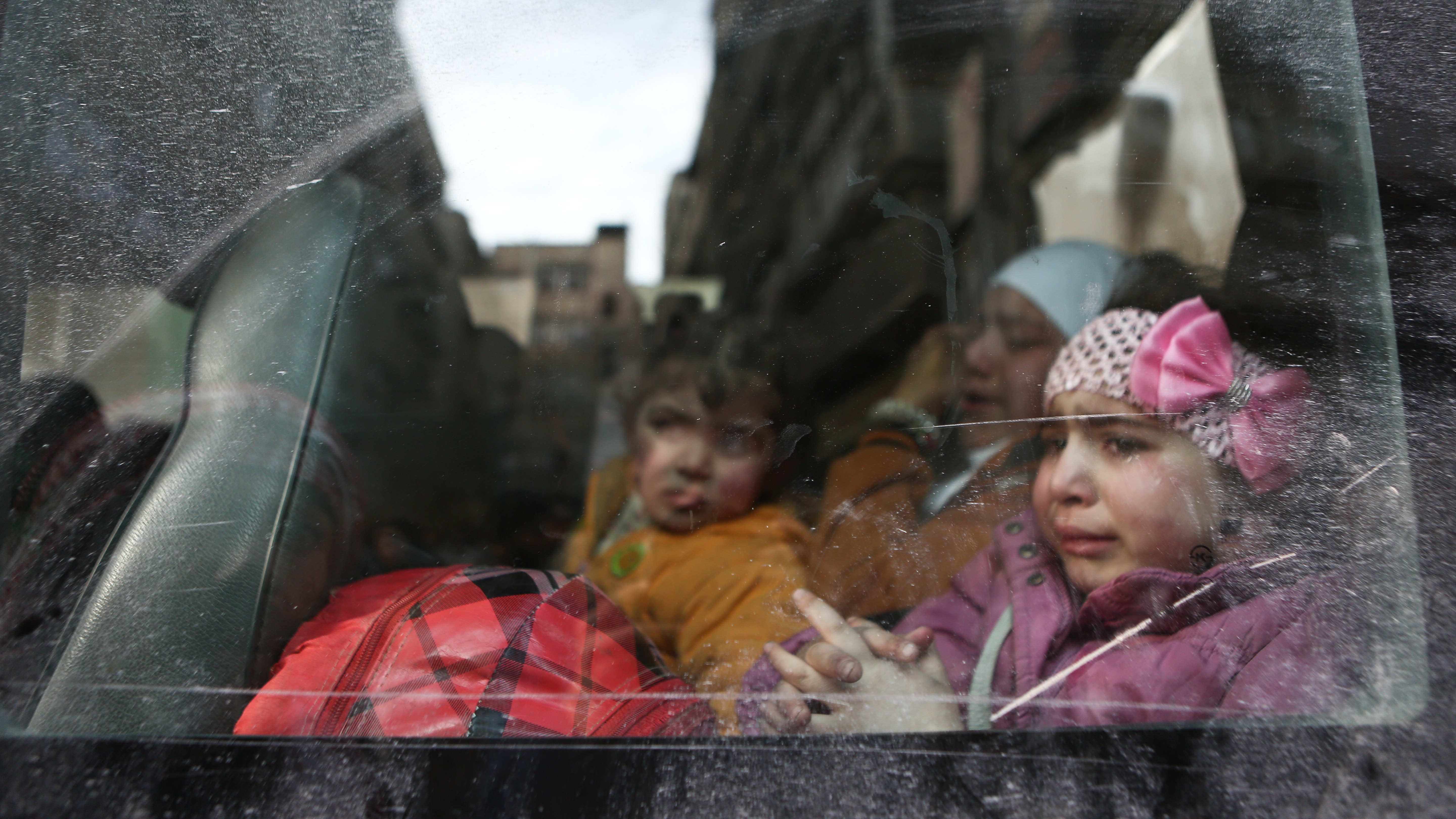
Dr Ekzayez spoke to Forces News following a meeting at the Royal United Services Institute in Central London.
The event, held to promote a joint report between RUSI and charity Save the Children, saw a panel of experts discuss how to prevent civilian deaths in conflict.
It came just a week after the Defence Secretary Gavin Williamson released a statement confirming a civilian had been killed in an RAF strike in Eastern Syria at the end of March.
It was the first time the UK had confirmed a civilian had been killed in the airstrikes.
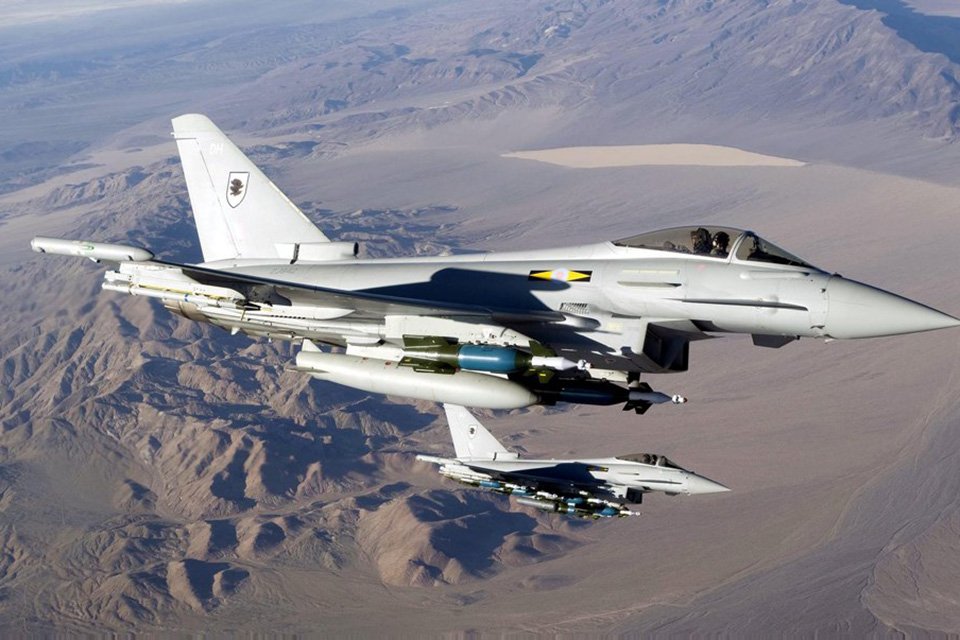
On the panel at the event was former Chief of the Defence Staff Lord Stirrup, who said upholding conflict law is embedded into British Armed Forces training and support structures.
"It’s part of the training of our military – part of how we organise ourselves for warfare.
"I have personally been involved in targeting decisions in conflict and when I was I had a lawyer by my side the entire time.
"The issues of collateral damage, proportionality and military necessity were always at the forefront of one’s mind.
"I’m not saying that the military is set out to ensure they kill no civilians because that is clearly an impossibility, but they do set out from the outset of the targeting process with the issue of collateral damage in mind and containing the damage that is done."
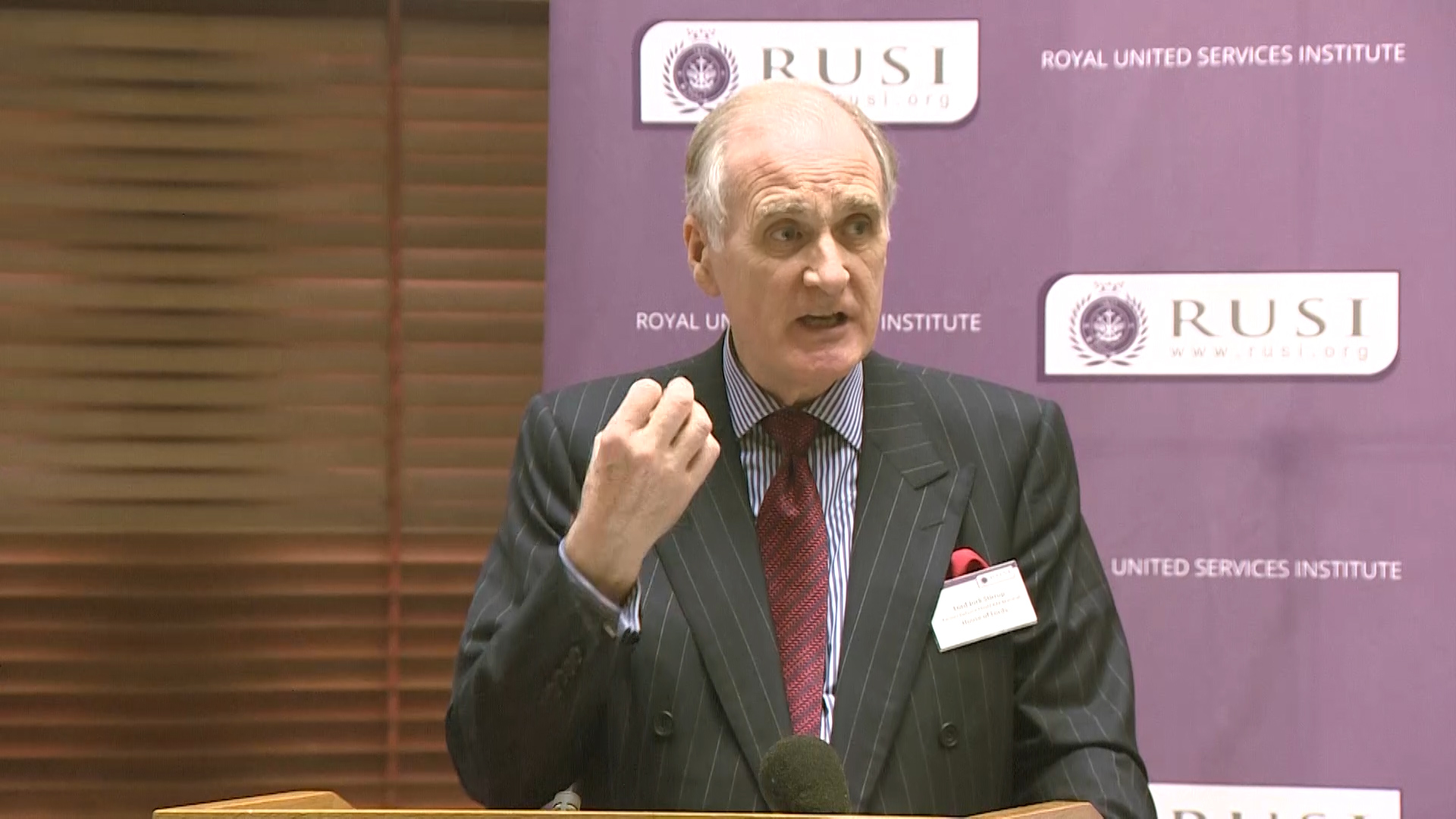
Dr Ekzayez agreed some civilian deaths are inevitable, but he told Forces News that he believes the UK could act as a role model for other nations.
"They do have well-structured institutions to play this role.
"If they were willing to update their strategies and policies to incorporate the new challenges faced in today’s warfare to address the protection of civilians in conflict I think they would be in an even better position.
Forces News has approached the Foreign & Commonwealth Office for a response.




